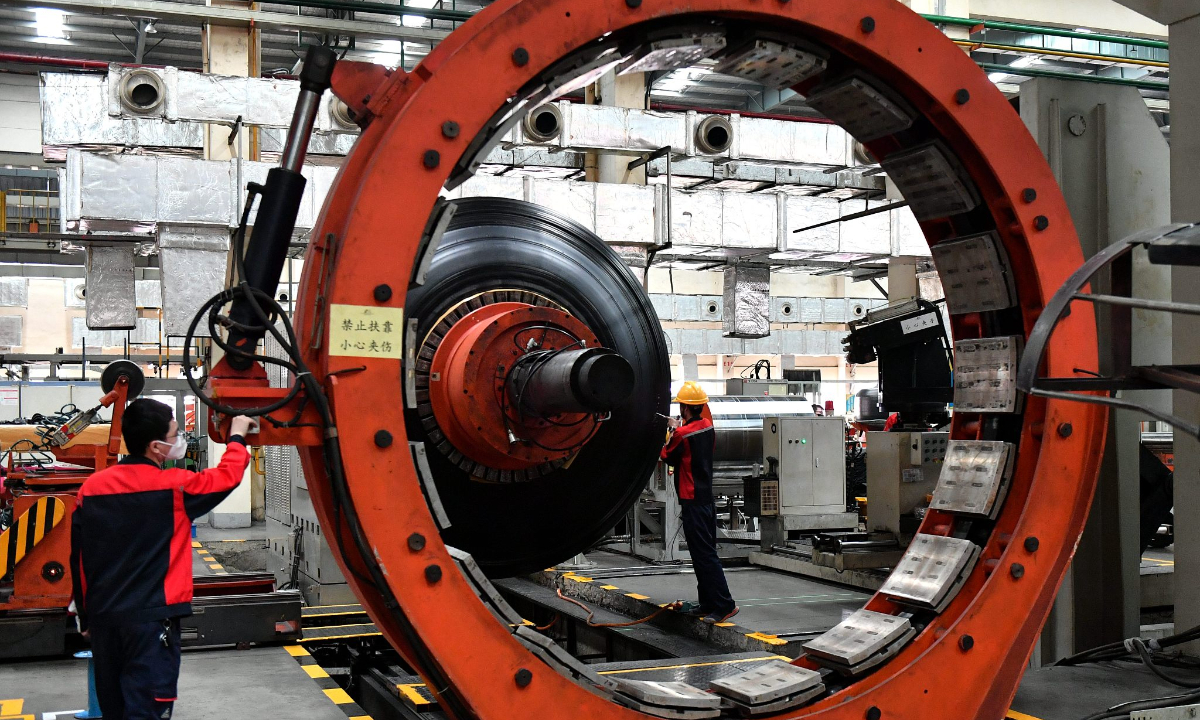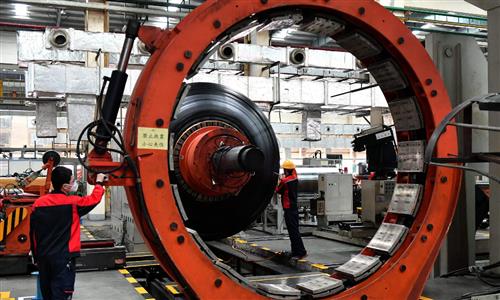China’s private services business activity rebounds in December, as Caixin services PMI comes in at 52.2

PMI Photo:VCG
China's Caixin General Services Purchasing Managers' Index (PMI) reached 52.2 in December, the highest since June 2024, signaling an accelerated expansion in the private service sector, latest data released on Monday showed.
The December reading, which gauges the operating status of industries such as retail and tourism, rose by 0.7 percentage points from November. A reading above 50 indicates expansion in business activity, while a number below 50 signals contraction.
In a breakdown, the expansion of supply and demand has slightly gained pace in December, with the new orders index reaching its highest level in five months, according to the Caixin survey. The growth in new orders was mainly driven by domestic market demand, while external demand showed signs of contraction in December.
With regards to market prospect, service firms remain generally optimistic. The survey showed that some services firms believe that the introduction of new business categories, intensified efforts in business development, and supportive policies will help drive their sales growth in 2025. Meanwhile, there are certain companies that expressed concerns about intensifying competition and the outlook for international trade.
The situation in the private service sector is consistent with the official PMI survey released by China's National Bureau of Statistic (NBS) on December 31, which measures that of large and state-owned enterprises. In December, the official non-manufacturing PMI jumped to 52.2 from November's 50, with the sub-index tracking service activity soaring to 52 last month, up 1.9 percentage points from November and highest level since April, according to NBS.
In December, China's private Caixin manufacturing PMI slipped by 1 percentage point to 50.5, though still remaining in the expansion territory. And the slowdown has dragged the Caixin China Composite PMI down by 0.9 percentage points to 51.4 in December.
Wang Zhe, a senior economist with Caixin Insight Group wrote in a note on Monday that some sub-indexes of the Caixin manufacturing PMI in December showed signs of weakening activity, which tells "the sustainability and effectiveness of policy stimulus still require further observation." However, as the combined effects of the government's incremental pro-growth stimulus policies keep on unfolding since late September and as the overall economy has been stable, it is likely that the main economic and social development goals set for 2024 are expected to be achieved, he said.
Wang noted that, in 2025, the policymakers need to prepare in advance and respond promptly in face of a "more complex and challenging" external situation. He suggested that future policies should focus more on increasing household incomes and improving livelihoods, with particular emphasis on enhancing the public's consumption capacity including the vulnerable groups.
Tian Yun, an economist based in Beijing, told the Global Times on Monday that the set of upbeat PMI figures also points to China's consolidated economic recovery in the fourth quarter, with domestic demand palpably picking up and market expectation continuing improving.
"The Central Economic Work Conference in December has further injected stronger confidence into the market. And we expect the economy to achieve the full-year growth target in 2024, laying a solid foundation for a good opening in 2025," he noted.
Global Times

